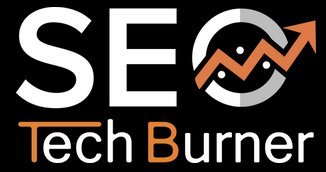Role of Technical SEO in SEO
Search Engine Optimization (SEO) is a multifaceted process aimed at improving a website's visibility and ranking on search engine results pages (SERPs).

Search Engine Optimization (SEO) is a multifaceted process aimed at improving a website's visibility and ranking on search engine results pages (SERPs). While most people focus on keyword research and content optimization, Technical SEO plays an equally crucial role in ensuring that a website meets the technical requirements of modern search engines like Google. This includes factors like website architecture, load speed, mobile optimization, crawlability, and security. In essence, technical SEO forms the foundation upon which all other aspects of SEO rely.
1. Improving Crawlability and Indexability
Search engines send bots (also known as crawlers or spiders) to explore websites. For search engines to rank your site, they need to be able to crawl and index it efficiently. Technical SEO ensures that search engines can easily access and navigate the pages on your site.
Key tasks involved in improving crawlability include:
- XML Sitemap: An XML sitemap acts as a roadmap for search engines, directing them to the important pages on your site. It helps crawlers to discover and index pages faster, ensuring they don’t miss any content.
- Robots.txt: This file allows webmasters to give specific instructions to search engine crawlers about which pages should or shouldn’t be crawled. Properly configuring the robots.txt file ensures that search engines don’t waste time crawling irrelevant or duplicate content.
By making your site crawl-friendly, technical SEO ensures that search engines can efficiently access all your content, allowing it to rank well on search results.
2. Enhancing Website Speed
Website speed is a critical ranking factor in SEO. A slow website not only provides a poor user experience but also negatively impacts your rankings on search engines. Google has made it clear that page speed is important for ranking, especially on mobile devices.
Technical SEO aims to optimize a website’s load time through various strategies, such as:
- Image Optimization: Compressing and optimizing images for the web reduces the file size, ensuring faster loading times.
- Minifying CSS, JavaScript, and HTML: By removing unnecessary characters and spaces from code, these files become smaller and quicker to load.
- Browser Caching: Caching allows the browser to store some resources locally, reducing the time it takes to load the page on subsequent visits.
By improving website speed, technical SEO ensures that visitors enjoy a seamless experience, which in turn enhances SEO performance.
3. Mobile Optimization
With mobile traffic accounting for the majority of global web traffic, search engines, particularly Google, prioritize mobile-friendly websites in their rankings. Mobile optimization is a significant aspect of technical Gurgaon SEO, and Google has adopted mobile-first indexing. This means Google predominantly uses the mobile version of your site to determine rankings.
A mobile-optimized website should include:
- Responsive Design: Websites should adjust automatically to fit the screen size of any device, whether it’s a mobile phone, tablet, or desktop.
- Mobile-Friendly Features: Large, clickable buttons, optimized text sizes, and fast-loading pages all contribute to a better mobile experience.
Technical SEO ensures that your website delivers an excellent experience across all devices, contributing to improved rankings and user engagement.
4. Structured Data and Schema Markup
Structured data is a method of organizing information on a webpage in a format that search engines can easily understand. Schema markup is a form of structured data that can be added to your web pages to provide search engines with more detailed information about the content.
For example, schema markup can help search engines understand if a page is about a product, a review, an event, or a business. This allows search engines to display rich snippets (enhanced search results with additional information such as star ratings, prices, etc.), which can improve visibility and CTR (Click-Through Rates).
Technical SEO integrates structured data into your site to ensure that search engines understand and display your content more effectively.
5. Fixing Crawl Errors and Broken Links
Crawl errors occur when search engine bots are unable to access certain pages on your website, often due to broken links or incorrect server configurations. These errors can hinder the performance of your site in search rankings.
Technical SEO helps identify and fix these errors by:
- Using Google Search Console: This tool provides detailed reports on crawl errors and helps you fix issues related to 404 pages, server errors, or redirects.
- 404 Redirects: Setting up proper 301 redirects from old or broken URLs to new, relevant pages prevents users and search engines from encountering dead ends.
By regularly checking for and resolving crawl errors, technical SEO ensures that your website is always accessible to both users and search engines.
6. Website Security (HTTPS)
Website security is another crucial aspect of technical SEO. Google gives preference to secure websites with HTTPS (HyperText Transfer Protocol Secure) encryption over sites that still use HTTP. Websites with HTTPS are considered more trustworthy by users and search engines alike.
Switching from HTTP to HTTPS involves obtaining an SSL (Secure Sockets Layer) certificate, which encrypts the data transferred between the user’s browser and the website, ensuring privacy and security. Technical SEO ensures that your website is secure, which can also positively affect your rankings.
7. Improving URL Structure and Internal Linking
A clean and logical URL structure contributes to better crawlability and user experience. Technical SEO ensures that URLs are short, descriptive, and include relevant keywords.
Internal linking—using hyperlinks within your website that direct users to other relevant pages—is also an important technical SEO factor. Proper internal linking helps distribute link equity across your site, making it easier for search engines to index all pages.
Conclusion
Technical SEO is an essential pillar of any successful SEO strategy. While content and keyword optimization are essential, a well-optimized technical structure ensures that your website can be easily crawled, indexed, and ranked by search engines. Improving website speed, mobile optimization, and security, fixing crawl errors, implementing structured data, and ensuring clean URL structures all contribute to the overall health and performance of a website.
By focusing on technical SEO, businesses can create a strong foundation for other SEO efforts to thrive. It enhances user experience, boosts rankings, and ultimately helps businesses achieve long-term success in the digital landscape. A well-optimized technical SEO strategy ensures that a website performs at its best, contributing to higher search engine visibility and better user engagement.
SEO Services in Gurgaon | Digital Marketing Services in Gurgaon | PPC Agency in Gurgaon
What's Your Reaction?














